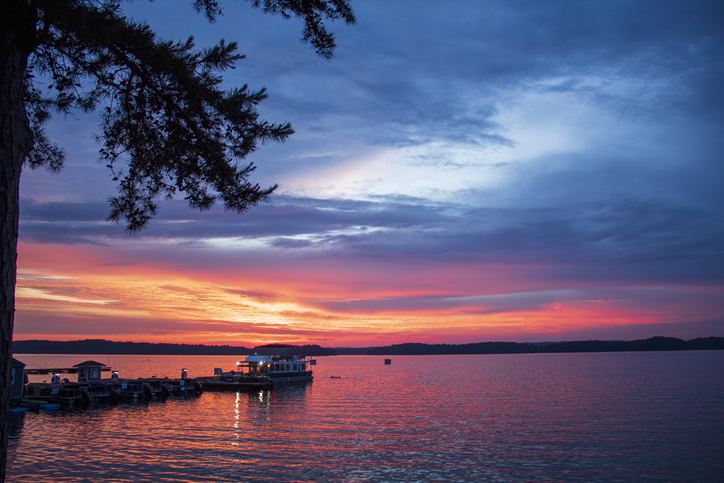Georgia Republicans Push Back On Renaming Haunted Lake Named After Confederate Soldiers
Source: Subhadra Gupta / 500px / Getty
Federal officials have temporarily halted plans to rename Georgia’s famous haunted reservoir Lake Lanier and the Buford Dam, two landmarks named after Confederate soldiers.
MORE: The Haunting Of Lake Lanier And The Black City Buried Underneath
After pushback from Republican representatives, the U.S. Army Corps of Engineers announced Friday they would be pausing any renaming efforts pending further guidance from the Department of the Army.
“The U.S. Army Corps of Engineers is pausing any actions related to project renaming pending further guidance from the Department of the Army,” Gene Pawlik, acting chief of public affairs for the Corps, said in a statement.
According to the Gainesville Times, the Army Corps of Engineers announced their plans for the name changes just hours before the pause announcement and even set up a website to gather public sentiment. Their plan was following the 2021 federal law called the Naming Commission, which oversees efforts to change the names of military bases and monuments that celebrate confederate soldiers. Now, it looks like those plans will stall for a bit.
Georgia Republican, U.S. Rep. Andrew Clyde, who is in opposition to the pause, called the Corps of Engineers’ decision “a tremendous victory” and that “renamings would have attempted to rewrite history, impose massive burdensome costs on our community and create unnecessary mass confusion.”
Other officials around the state also oppose the name change.
Clyde Morris, a board member of the advocacy group Lake Lanier Association brushed off the significance of the lake and the dam’s names, telling the Gainesville Times, “We think the connection between the Confederacy and the namesakes (of the lake and dam) are really too remote to justify changing the names of the lake and the dam.”
Gainesville Mayor Sam Couvillon also raised concerns about logistics.
“I feel like asking for the name of Lake Lanier to change is not practical and would only create confusion and problems,” he said in an interview with the Times.
Georgia’s Lake Lanier, which was built after World War II, was named after poet Sidney Lanier. Lanier severe as a private in the Confederate army, but was known for writing “Song of the Chattahoochee,” a poem about the popular river.
But over the years, Lake Lanier has gained a reputation as a haunted lake with secrets of terror, death, genocide and ghosts. Lake Lanier was once the Black town of Oscarville, home to roughly 1,100 black folks, most of whom were freed after fighting in the American Civil War.
Over time, pieces of the land would be sold to the government, and by 1950 a plan to build Lake Lanier was in full effect. Soon the entire town of Oscarville would be underwater, intentionally flooded in conjunction with the Buford Dam to support the growing demand for a water supply to the nearby cities.
In the end, construction would destroy more than 50,000 acres of farmland and displace more than 250 families. It would also relocate 20 cemeteries (and their corpses) in what some may see as an attempt to erase the sins of its past.
Many folks who live close by will tell you straight up, “Don’t go to Lake Lanier.” And its death toll certainly validates their point. There have been well over 500 deaths since the lake’s inception and more than 200 since 1994.
Whether the lake is haunted or not, it still has a history that is painful to so many. If the name and what the Confederate army stood for aren’t good enough to make the necessary changes, do it for the ancestors of the Black families misplaced when the state decided to make a giant lake in the middle of nowhere.
SEE ALSO
Black Folklore In Video Episode 2: The Ghosts Of Lake Lanier
The post Georgia Republicans Push Back On Renaming Haunted Lake Named After Confederate Soldiers appeared first on NewsOne.

